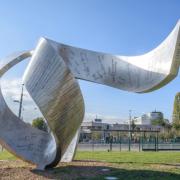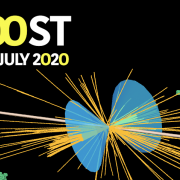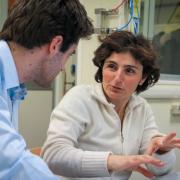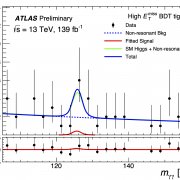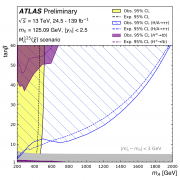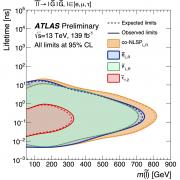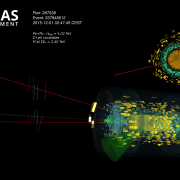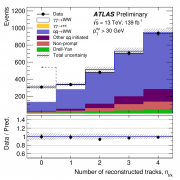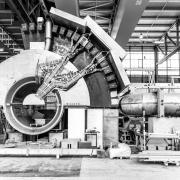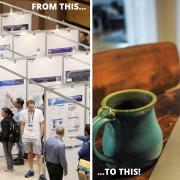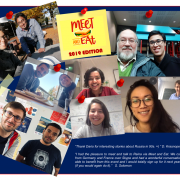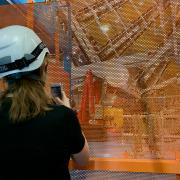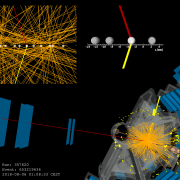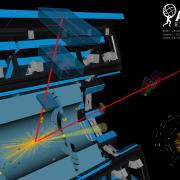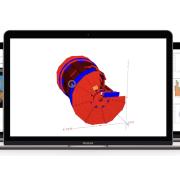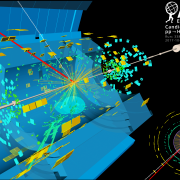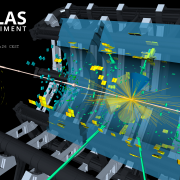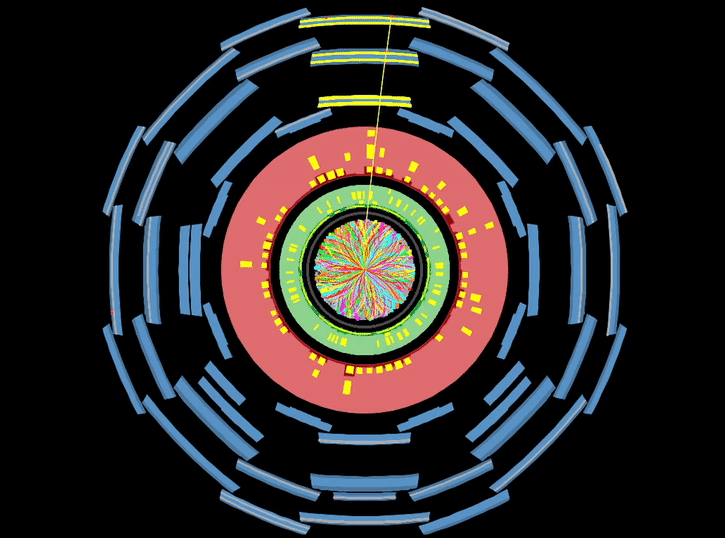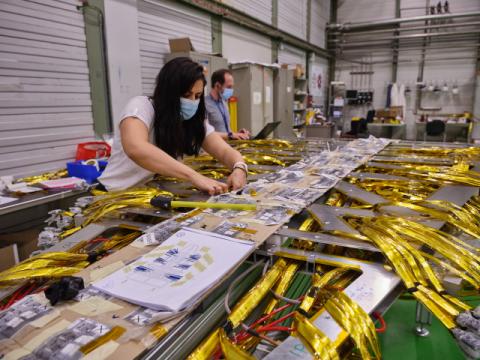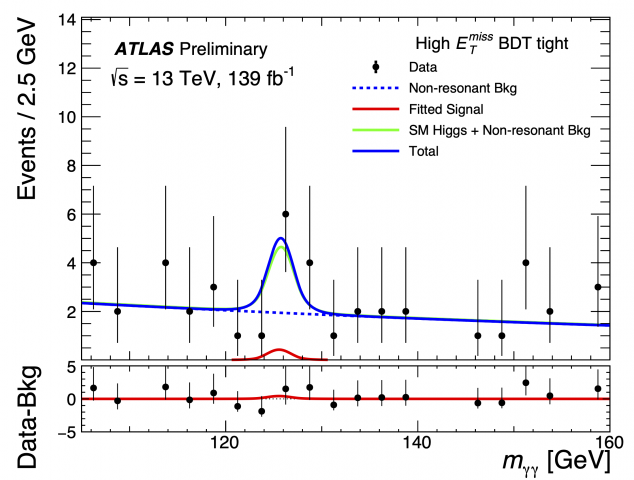Access to Collaboration Site and Physics Results
Updates tagged: “EPS”
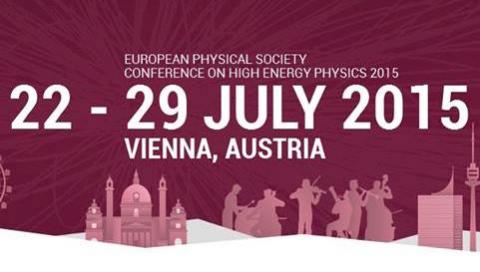
First Run 2 results to be presented at EPS
The first results using the record-breaking Run 2 data will be presented at the European Physical Society conference on High Energy Physics (EPS-HEP) in Vienna, 22-29 July. It will be an exciting opportunity to see how these first few weeks of data-taking have progressed.
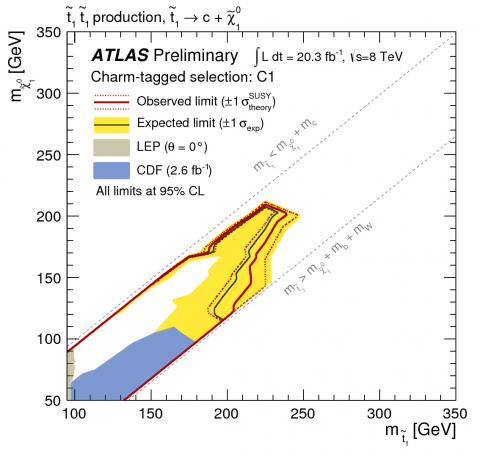
New searches for SUSY
ATLAS today presented new searches for Supersymmetry, a theory that could explain the large amount of dark matter in the universe.
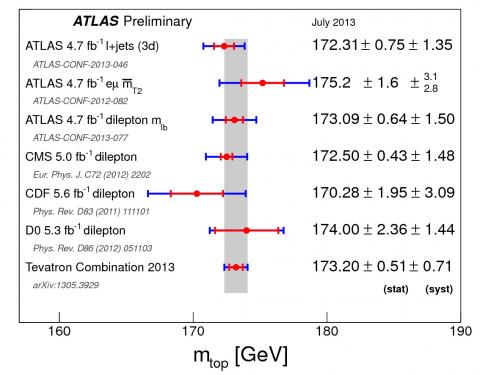
New results on the properties of the top quark
At the EPS HEP conference today, ATLAS released a new precise measurement of the top quark mass using events where both top quarks decay via W bosons to electrons or muons. ATLAS also presented limits on the possibility of the top quark decaying to channels not foreseen in the Standard Model. A comparison of the behaviour of top quarks and anti-top quarks produced at the LHC is in agreement with the prediction of the Standard Model, disfavouring models of new physics that require a large top/anti-top asymmetry.
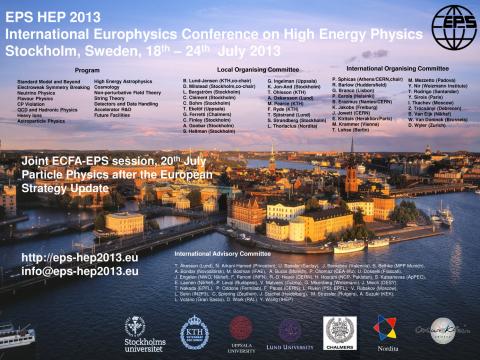
New Results for EPS
ATLAS physicists will be presenting new results at the biennial Europhysics conference on High Energy Physics this year. The conference, which will take place 18 to 24 July in Stockholm, Sweden, is organized by the High Energy and Particle Physics Division of the European Physical Society (EPS).
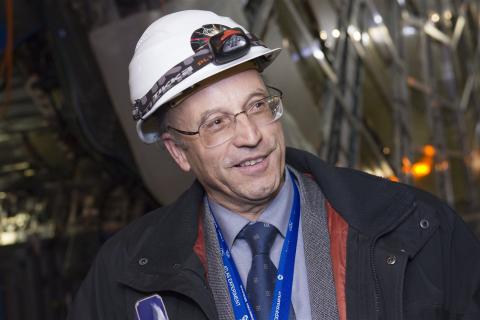
Everyone Here Is Motivated By Physics
In June 1993, ATLAS and CMS were given the provisional go-ahead to submit technical proposals. Twenty years later, for the discovery of the Higgs boson, the European Physical Society has awarded the High Energy and Particle Physics Prize 2013 to the research teams of the ATLAS and CMS experiments. For their “pioneering and outstanding leadership roles in the making” of the experiments, the prize also goes to ATLAS' Peter Jenni and CMS' Michel Della Negra and Tejinder Virdee. We talked to Peter Jenni, who was spokesperson of the ATLAS collaboration for the first 15 years, on ATLAS' past and future.
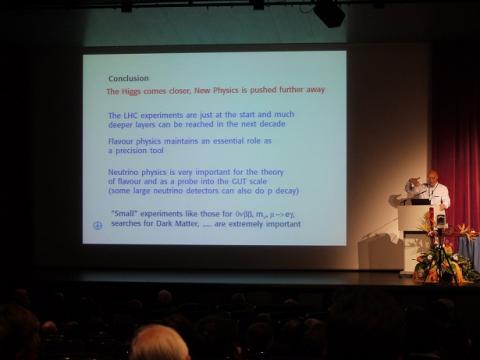
A look back at the EPS
I happened to run into Andrey Korytov after his eagerly awaited CMS Higgs talk. No, CMS had not yet seen the Higgs, and ATLAS could breathe a sigh of relief.
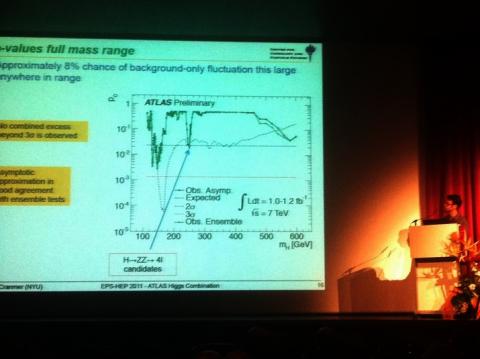
A view inside the ATLAS Higgs combination
Well it's been a few days since the Higgs presentations at EPS, and I'm just recovering from the lack of sleep. It's ironic that I have a newborn daughter, and my sleep deprivation is due to work.
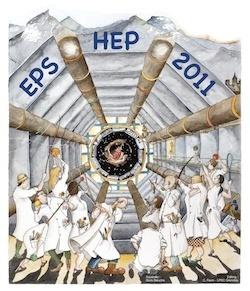
Arrival at EPS
When I was invited to give a talk on behalf of ATLAS at this summer’s European Physical Society High Energy Physics conference (EPS), I wasn’t really sure what to expect. Most conferences I have been to are relatively intimate affairs where you have long discussions after every talk and then everybody trots down to the pub together to discuss the day’s results. EPS, though, is one of the largest particle physics conferences in the world. Or at least I reckon it is, having eyeballed the number of participants registered on the website, hailing from all sorts of fields ranging from astrophysics to ultra relativistic ions to our very own LHC proton-proton collider physics.
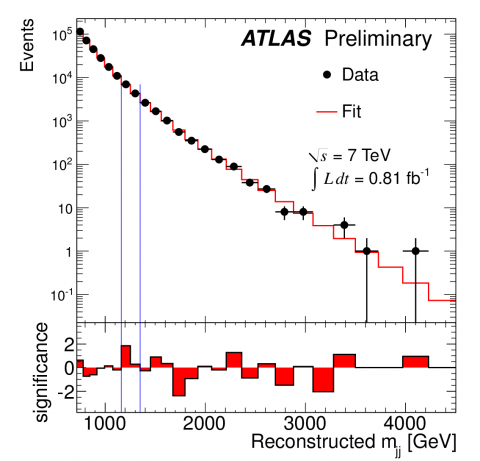
ATLAS results revealed at EPS HEP 2011 conference in Grenoble
Many members of the ATLAS Experiment Collaboration have been at the European Physical Society's HEP 2011 conference in Grenoble, France, this week, revealing the results of 35 new and exciting physics analyses for the very first time.
Pages
- « first
- ‹ previous
- 1
- 2
- 3


